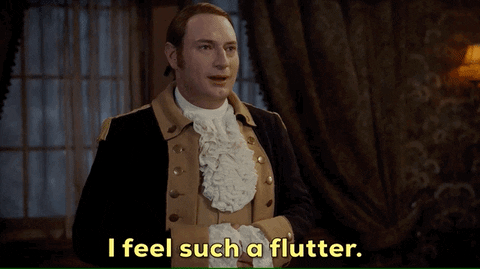#Fact: Autism Isn’t an Epidemic — Ignorance Is
I, like most people, woke up this morning with exciting news in neurodivergence!!
The “Autism” that I’ve had since birth, that wasn’t identified until I was 37 (shout out to my fellow level one females who are EXCELLENT maskers) will be cured in months!!!
WAHOO!!!
I don’t need to be cured, but clearly, now is a very important time to speak up.
Maestro …
From whatever outlet you receive your news, I’m assuming you saw the headline this morning from the Secretary of Human Health Services stating that (::puffs chest:: and I quote):
“We’ve launched a massive testing and research effort that’s going to involve hundreds of scientists from around the world,” he told President Donald Trump in a Cabinet meeting. “By September, we will know what has caused the autism epidemic, and we’ll be able to eliminate those exposures.”
What is this, like the Purge?
On August 31st, (for 12 hours only), are a bunch of scientists (hundreds to be exact) going to identify and then kill all family members (around the whole world) of neurodivergent people before the 2025-2026 school year starts?
Sorry mom and dad, clearly I thought dysentery from the Oregon Trail was more likely for your demise given today’s climate.
This sounds ridiculous right?
That’s the point.
That’s how unbelievable a statement like this is in general, let alone from someone who is in a position to be the advisor, of many things, including mental health.
Did I also mention it is AUTISM AWARENESS MONTH?!
I love being autistic. Personally, I think of it as the “cool kids club.”
I love that when I’m interested in something - I become RABID about it, and “deep dive” down rabbit holes only to emerge going “I JUST FOUND OUT THE COOLEST THING” to anyone in ear shot. My excitement is then contagious and has helped me make a lot of friends out of strangers.
I love that my mind solves problems creatively, but also rooted in logic. This allows me to have a lot of friends that are not only artists but engineers as I can seamlessly move between the worlds.
I love that I notice things others miss, and my memory is so strong that I can recall very specific details even in a court of law. This helped me set legal precedent in the state of Connecticut before I could even vote in the state of Connecticut.
The differences that I experience being neurodivergent have allowed me to lead an INCREDIBLY exceptional life … that now i can take credit for.
While learning to regulate my sensory input hasn’t been easy, it is now, (thanks to Autism advocacy and awareness) become manageable.
With that being said, the idea of being “cured” doesn’t interest me, and misinformation like this is dangerous to an already vulnerable group of people in thinking there is something inside of them that needs to be “fixed.”
I learned recently that Autism has only been studied in a more advanced capacity in the last 15-20 years.
I was really mad when I first found out I’m autistic because I had assumed I had been tested for it at some point (thinking everyone gets tested). I was 29 years old when the DSM-5 (DSM — short for Diagnostic and Statistical Manual of Mental Disorders aka the holy grail of mental health information for doctors) was updated.
The DSM-5, released in 2013, replaced the older subcategories like Asperger’s Syndrome, Pervasive Developmental Disorder-Not Otherwise Specified (PDD-NOS), and Autistic Disorder with a single umbrella diagnosis: Autism Spectrum Disorder (ASD). This shift aimed to better reflect the range and diversity of traits people experience, but it still didn’t include sex-specific diagnostic criteria or explicitly acknowledge how autism may look different in females.
Why does this matter?
Because the DSM criteria were largely based on studies of boys, many girls and women didn’t meet the traditional benchmarks for diagnosis — especially those who mask or have more internalized symptoms. Traits like:
Being socially quiet or anxious rather than disruptive
Having "acceptable" special interests (e.g., animals, fiction, celebrities)
Overcompensating with imitation or people-pleasing behaviors
These were overlooked or mislabeled as something else (like social anxiety or borderline personality disorder).
In the US, autism prevalence has risen significantly in the last 20 years, with the Centers for Disease Control and Prevention (CDC) reporting that 1 in 36 children are now diagnosed with autism spectrum disorder (ASD), up from 1 in 150 in 2000.
In the simplest terms, Autism didn’t just “suddenly appear” - more people have become aware of it, and doctors have realized that what they thought was “autism” from 50 years ago, is more of a spectrum than what was originally thought.
20 years ago, a controversial non-profit Autism Speaks emerged as an “expert” and personally speaking has caused more harm than good.
For two decades, Autism Speaks has positioned itself as the leading voice on autism awareness. But for many actually autistic people, it represents something very different: a harmful organization that promotes fear, silences autistic voices, and supports therapies rooted in compliance rather than acceptance.
One of the most glaring issues is that Autism Speaks historically prioritized finding a “cure” for autism, framing it as a tragedy or epidemic rather than a neurodevelopmental difference.
This messaging fuels stigma, not support.
A particularly controversial therapy championed in the past by Autism Speaks is Applied Behavior Analysis (ABA). While ABA is still widely used today, many autistic adults report that it feels more like conditioning than support. Critics argue that ABA often focuses on suppressing natural autistic behaviors (like stimming or avoiding eye contact) rather than helping individuals thrive as they are. In fact, some who went through ABA report lasting trauma, comparing it to conversion therapy in how it forces conformity over autonomy.
Autism Speaks has also failed to center autistic voices in its decision-making. Until recently, its board had almost no representation from actually autistic people. Imagine an organization claiming to speak for a community without including members of that community in its leadership. That’s not advocacy — that’s erasure. Furthermore, only about 1% of their budget has gone to services that directly support autistic people and families. The vast majority of funding goes toward research, often into causes and prevention — again, reinforcing the idea that autism is a problem to eliminate.
Real autism advocacy is about acceptance, accommodations, and empowerment, not fear-mongering or forced normalization.
It’s absolutely heartbreaking that someone in the position of HHS chose ignorance over an opportunity to educate during the month declared for awareness on said topic.
Autism isn’t a tragedy — the stigma is. It’s not an epidemic, it’s part of the human story. And if we want a better world, we don’t need to fix autistic people — we need to fix how the world treats them.
The time for silence is over … unless of course I’m over stimulated, but just give me about 20 minutes in a dark room, and then I most likely will be able to use my voice again.




























